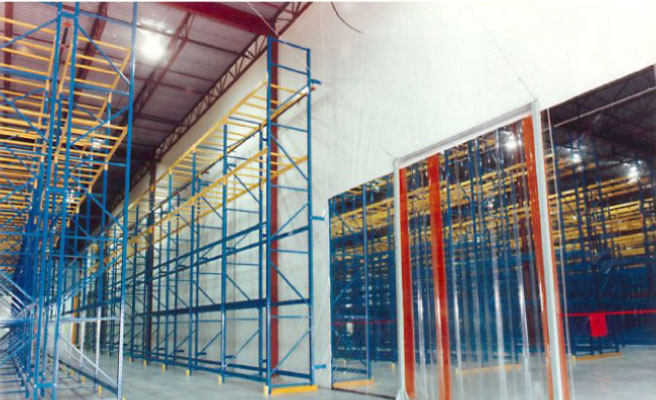What are soft wall partitions?
Soft walls are a flexible, attractive, and budget-friendly way to create privacy in your commercial office, garage, or home without resorting to sealed rooms or air conditioning and heating equipment. Different types of hard or corrugated particle board, sandwich panels, fabric-covered steel, and polycarbonate will give you options, depending on the type of equipment, distance, and size that you are requiring. Features Soft wall partitions can be rolled up, assembled and painted, or glued. When they are set up, they can be placed against a wall or even with objects, such as pipes and cables, between the walls. They are installed into just about any environment and can be re-adjusted or removed quickly. Use soft wall partitions to separate, enclose, and separate again.
How are soft wall partitions installed?
Numerous companies manufacture various sizes of soft wall partitions that are installed in addition to conventional walls or on top of them. Many of them require little or no additional work on your part, but others require electrical work, plumbing work, floor installations, etc. One popular choice for a home user installation is composite material panels and a 4″ foam liner with a cardboard backing. But, choosing the right material, size, and thickness of materials can make a big difference in how much work you need to do. The most popular soft wall partition material is the composite panel consisting of two layers of 2″ plywood panels with foam insulating material. I have a question about soft wall partitions. How long will they last? Most soft wall partitions should last 20-25 years.
Why are soft wall partitions the best solution for privacy in your office?
1. Quality and Convenience Disguised as cardboard, corrugated board, or fiberboard partitions and cabinets are cost-effective and can be fabricated in a variety of sizes and finishes to match any unique interior space. One cost-effective option for cabling or piping installation is to convert a standard 13-foot long section of the steel building fabric (also called mild steel) into a formable panel, which can be easily installed in a small room or a few smaller spaces. They have a natural look, providing an appealing backdrop for the people in space or enhancing the look of a utilitarian environment while being as strong as the fabric they are made from. 2.
How can they be customized to your space?
Unlike regular wall panels, soft wall partitions are available in various wall and floor sizes and can be easily connected to add private areas to a space. Hard panels are built to withstand normal day-to-day business, but the soft panel is designed to break down and expand in weight to provide a series of partitions that are lightweight, climate-controlled, and provide space for high-density equipment, such as printers, food processing, and sewing. This doesn’t mean that you can’t mount and seal solid materials around the soft panels, but this will add to cost and maintenance. Therefore, soft wall partition panels are becoming the industry standard for both flexible and “permanent” walls.
How does color affect the perception of soft walls?
“Soft walls also can be up to 3mm thick or just a quarter of an inch. Color plays a big role in the way that people perceive soft walls.” By using natural colors such as beige, green, blue, etc., and contrast with the wall color to ensure that any need to restrict access and workflow can be easily seen. Color also provides privacy—something we can understand from our own experience. A subject close-up of a honeycomb wall. How are the pieces built? Soft wall panels are made with 2-3mm polypropylene paper and are glued together with either wood glue or other methods. The paper is covered in a polyurethane adhesive. Due to the construction method, soft walls are extremely durable and are designed to withstand high heat, cold, shock, and water with little damage.
What is the lifespan of a partition system made from fabric materials?
Durable fabric partition systems have an expected lifetime of 10 to 20 years depending on temperature and quality. To extend the lifetime, ensure that the fabric panels are tight-tied together and that every component is appropriately sealed. How are soft walls different from other partitions such as wood or drywall? Traditional partitions rely on a bolt system. When operating a building service, hammers may cause the boards to come undone. For this reason, wooden partitions have a much higher failure rate than fabric products. Fabric partitions are constructed from high-density fabric and are mounted to the wall with a carpenter’s level. If a board is not at the exact right height, leveling will correct the misalignment.
Fabric Partitions And The Environment
The environmental needs of industrial businesses continue to increase as companies seek to reduce their impact on the world and that of the environment. Flexible rigid barriers do not mix well with plant or process fluids, allowing chemicals, gasses, and odors to escape the area, as can heat. This can also cause increased temperatures as well as an overall increase in energy costs for cooling. Flexible partitions (FFP) solve this dilemma by using fabric, acrylic, or PVC to make the partition walls. These fabrics also remain flexible while maintaining the proper structural integrity for the partition wall. Unlike hard-shelled barriers, the fabric partitions can be more easily moved, making them ideal for busy production and/or storage environments.
Fabric Partitions And Maintenance
Newer types of soft walls are often completely made of fabric, with no paper or epoxy used. This makes it easier to maintain and thus reduces the cost of maintenance. Of course, if paper or epoxy is required, the fabric should be coated before use. Many products are now available for this, with each product having advantages and disadvantages.
Durability – Is Fabric The Right Option For Me?
Surface acoustic insulation (SAI) is a major component in a good soft wall partition. It doesn’t have the physical thickness to be considered a solid block wall and is so thin that it can be shown to be translucent with an applied finish, allowing for natural light and daylight inside the enclosure. The sizing can be custom-made, and thin enough to be 1/8″ or less in-depth. It is therefore a better option for design flexibility and privacy than a true solid wall. Ease of Installation – Does the Fabric Make The Cut? Soft wall partitions are easy to install; even with thicker panels and materials, the installation is generally about the same as the solid wall variety.
Conclusion
Soft Wall Cladding Products There are literally thousands of soft wall building materials available in the industry. Even if the design, cost, and performance have already been decided upon, there are tons of options for soft wall building products on the market. Stay in the loop on all things custom woodworking. Sign up for our free newsletter and learn more about Engineered Industrial Products in St Louis.





